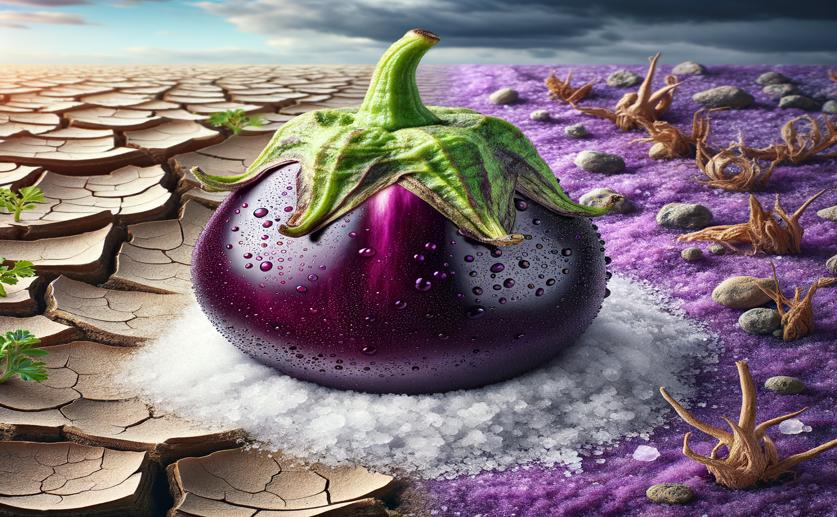
How Eggplant Gene WRKY40 Helps Plants Handle Salt Stress and Drought
Jim Crocker
21st August, 2024

Image Source: Natural Science News, 2024
Key Findings
- Researchers from the Shanghai Academy of Agricultural Sciences found that the SmWRKY40 gene in eggplant helps plants tolerate salt stress
- Overexpressing SmWRKY40 in model plants led to better seed germination and root growth under high salt conditions
- SmWRKY40 overexpression reduced oxidative stress and increased antioxidant defenses, improving plant resilience to salt stress
References
Main Study
1) WRKY transcription factor 40 from eggplant (Solanum melongena L.) regulates ABA and salt stress responses.
Published 20th August, 2024
Journal: Scientific reports
Issue: Vol 14, Issue 1, Aug 2024
Related Studies
2) Mechanisms of salinity tolerance.
3) Elucidating the molecular mechanisms mediating plant salt-stress responses.



 18th August, 2024 | Greg Howard
18th August, 2024 | Greg Howard